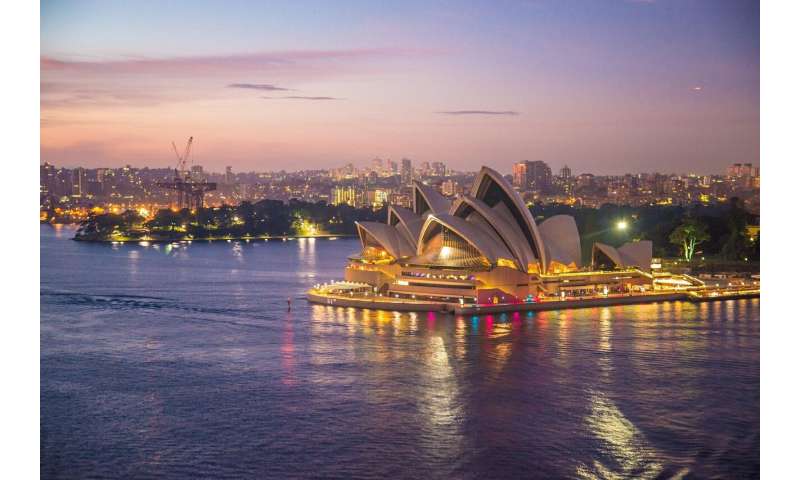South Australia announces six-day ‘circuit-breaker’ lockdown

South Australia announced a six-day “circuit-breaker” lockdown for its nearly two million people Wednesday to contain a sudden coronavirus outbreak that ended a months-long streak of no infections.
Schools, shops, pubs, factories and even takeaway restaurants were told to close at midnight and stay-at-home orders were issued for residents across the state.
A total of 22 cases have now been linked to a cluster that emerged from an Adelaide hotel used to quarantine travellers from overseas.
“We are going hard and we are going early,” state premier Steven Marshall said. “Time is of the essence and we must act swiftly and decisively. We cannot wait to see how bad this becomes.”
The state is the first in Australia to issue a blanket ban on outdoor exercise, and mask-wearing will be required across the state, which had not recorded a significant outbreak since April.
The measures stand in stark contrast to the United States—where some politicians are refusing to implement basic virus measures even as case numbers surge—or Europe, where lockdowns were introduced only after infections spiralled.
Chief health officer Nicola Spurrier said the infections appeared to be caused by a particularly virulent strain that was spreading “very, very rapidly”, with people becoming contagious within 24 hours.
“I cannot be making this decision in two or three weeks’ time or even two or three days’ time because it is going to be too late,” she said.
Since the cluster was confirmed officials had begun ordering thousands of suspected close contacts to self-isolate, and suspended international flights.
Adelaide residents have since been flocking to COVID-19 testing sites, with many forced to wait several hours in long queues to be seen by overwhelmed clinicians.
Spurrier said the state hoped to avoid a lengthy Melbourne-style lockdown. Residents in Australia’s second-largest city spent months mostly confined to their homes after security bungles at a hotel quarantine.
The surprise announcement sparked a fresh round of panic-buying in Adelaide, prompting supermarkets to introduce two-item limits for certain goods and to issue assurances they would remain open.
“We will have police officers on standby to attend if we see any civil disorder and we would take action,” South Australia police commissioner Grant Stevens said.
Melbourne, which recorded thousands of cases and hundreds of deaths at the height of its outbreak, has begun easing restrictions after more than two weeks without any new cases.
Other Australian regions, where the virus has largely been stamped out, have imposed new quarantine rules on anyone travelling from South Australia.
The country’s internal borders had been gradually reopening and were due to be almost fully reopened by Christmas, but the latest outbreak may put that at risk.
It will also further slow the return of more than 30,000 Australians who remain stranded overseas due to government-imposed caps on international travellers—despite a government pledge to bring them home by the holidays.
Source: Read Full Article


